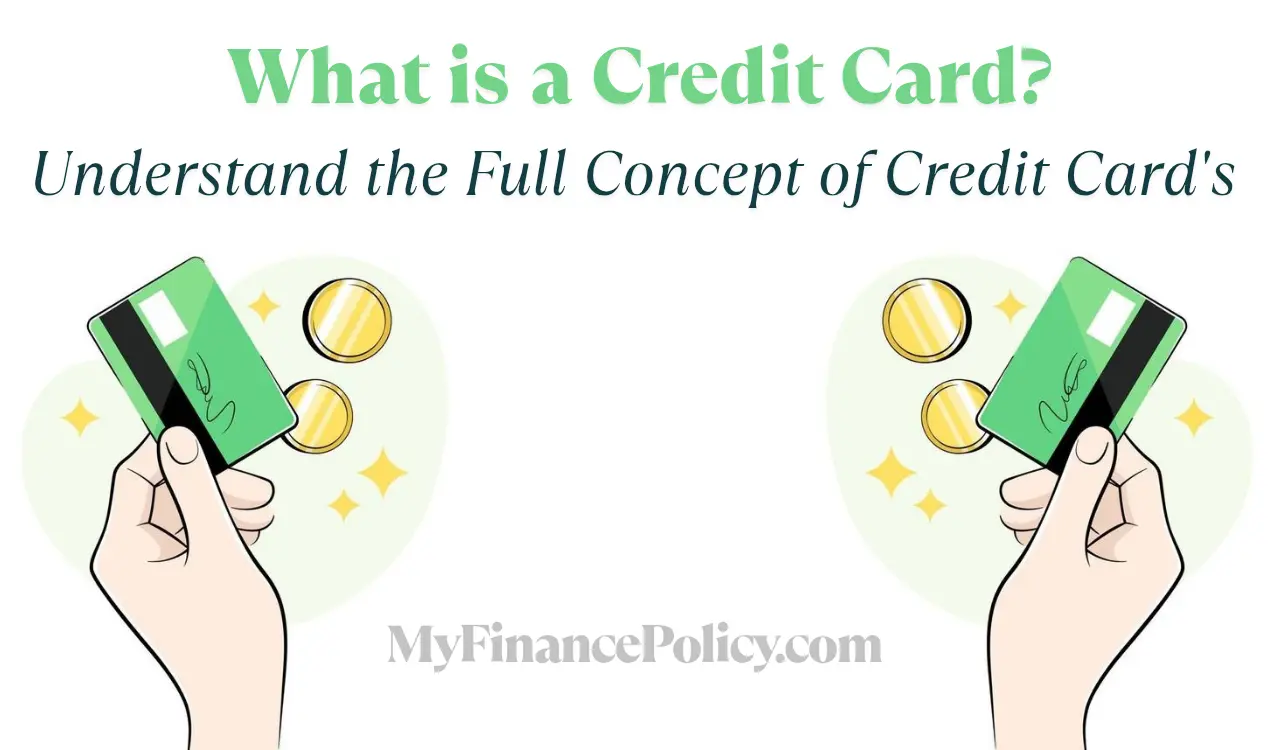Table of Contents
Credit cards have become an essential financial tool in modern life, especially in countries like the USA and UK. But what exactly is a credit card, how does it work, and why is it so commonly used? This comprehensive guide will help you understand the full concept behind credit cards, their benefits, drawbacks, and how to use them responsibly.

What is a Credit Card?
A credit card is a financial instrument issued by banks or credit institutions that allows you to borrow funds up to a certain limit to pay for goods and services. The borrowed amount must be repaid later, either in full or over time, with interest.
Key Characteristics of a Credit Card
- Credit Limit: The maximum amount you can borrow on the card.
- Interest Rate (APR): The cost of borrowing if you carry a balance.
- Minimum Payment: The least amount you must pay each month.
- Billing Cycle: Typically 30 days, after which your statement is generated.
- Grace Period: The time you have to pay off your balance without interest (usually 21–25 days).
How Does a Credit Card Work?
When you make a purchase using a credit card, you’re essentially borrowing money from the card issuer. At the end of your billing cycle, you’ll receive a statement with all your transactions, the total balance, and the minimum payment due.
Example:
If your credit limit is $3,000 and you spend $500, you have $2,500 available. If you repay the $500 before the due date, you avoid interest charges.
Benefits of Using a Credit Card
- Build Credit History: Regular on-time payments improve your credit score.
- Rewards and Cashback: Many cards offer points or cashback on purchases.
- Fraud Protection: Unauthorized transactions can be disputed easily.
- Convenience: Accepted globally, ideal for travel and online shopping.
- Emergency Funds: Useful for unplanned expenses or emergencies.
Risks of Using a Credit Card
- High Interest Rates: If you don’t pay in full, interest charges can add up quickly.
- Debt Accumulation: Overspending can lead to large debts over time.
- Impact on Credit Score: Late payments or maxing out your card can lower your score.
Types of Credit Cards
- Standard Credit Cards: Basic cards with no rewards but low fees.
- Rewards Credit Cards: Earn points, miles, or cashback on purchases.
- Secured Credit Cards: Require a deposit; ideal for building or repairing credit.
- Balance Transfer Cards: Offer low or 0% interest on transferred debt.
- Business Credit Cards: Designed for business expenses and tracking.
How to Use a Credit Card Wisely
To maximize the benefits of a credit card while avoiding pitfalls, follow these smart usage tips:
- Pay your balance in full each month to avoid interest.
- Never miss a payment — set up automatic payments if possible.
- Keep your credit utilization below 30% of your limit.
- Review your statements for any unauthorized transactions.
- Use rewards cards strategically to earn points on essential purchases.
Credit Cards vs. Debit Cards
| Feature | Credit Card | Debit Card |
|---|---|---|
| Source of Funds | Borrowed (credit) | Your bank account |
| Builds Credit | Yes | No |
| Overdraft Risk | No (unless over limit) | Yes |
| Rewards | Often available | Rarely offered |
FAQs
What is a credit card in simple terms?
A credit card allows you to borrow money from a lender to make purchases, which you repay later.
Is it good to have a credit card?
Yes, when used responsibly, a credit card can help build credit, offer rewards, and provide financial flexibility.
Can I use a credit card without interest?
Yes, if you pay your balance in full within the grace period, you won’t be charged interest.
What happens if I only pay the minimum amount?
You will avoid late fees, but the remaining balance will accrue interest, potentially leading to debt.
Conclusion
Credit cards can be powerful financial tools if used wisely. From building credit to earning rewards and ensuring security, the benefits are significant. However, they must be used responsibly to avoid the common pitfalls of debt and high interest. Understanding the full concept of credit cards equips you to make informed financial decisions.
Ready to take control of your finances? Learn more in our complete guide to credit cards.
credit card, what is a credit card, how credit cards work, credit card explained, credit card example, key features of credit cards, credit card benefits, risks of credit cards, credit card usage, types of credit cards, credit card tips, using credit cards wisely, credit card guide, credit card vs debit card, best credit cards, low interest credit cards, zero interest credit card, credit card payments, minimum payment credit card, interest-free credit card, credit card FAQs, should I get a credit card, credit card basics, credit card pros and cons, credit card interest, responsible credit card use, credit score and credit cards, managing credit card debt, credit card fees, credit card charges, credit card security, credit card safety, student credit cards, rewards credit cards, cashback credit cards, credit limit, how to pay credit card bills, credit card offers, building credit with credit cards, credit card myths, credit card education, understanding credit cards, financial literacy, credit card management, EMI on credit card, credit card approval, choosing a credit card, how to avoid credit card debt, credit card statements


9 thoughts on “What is a Credit Card? Understand the Full Concept”